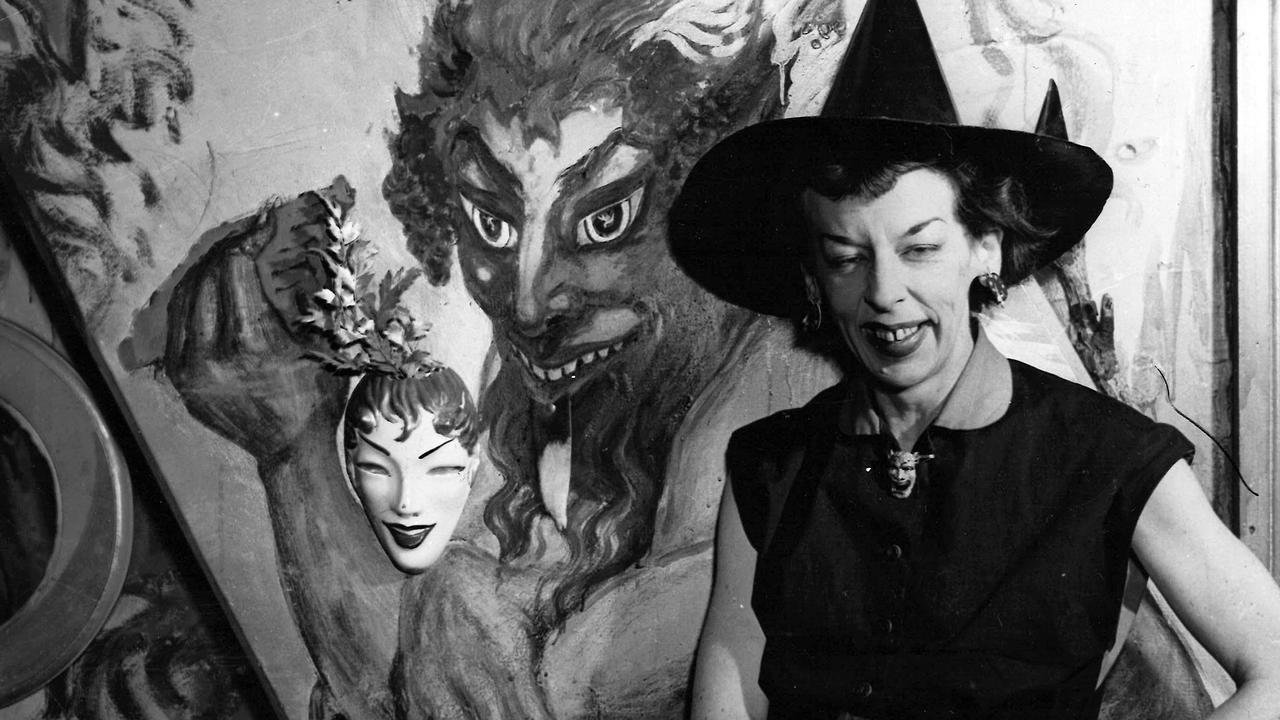Melbourne history: How Edith Onians saved the city’s newsboys
Beyond the romanticised notion of newsboys in flat caps shouting out headlines, it was a cutthroat world of gangs and turf wars.
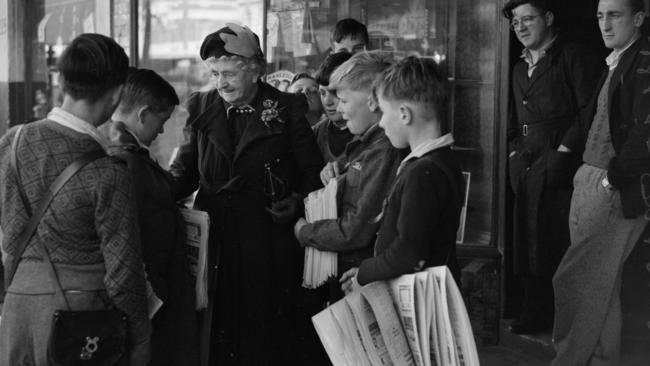
In Black and White
Don't miss out on the headlines from In Black and White. Followed categories will be added to My News.
While many fondly recall the ubiquitous calls from newspaper boys on street corners of “Herald, get your Herald”, there was a darker side to the industry in earlier times.
In the late 19th century, newsboys worked in gangs, forcing out rival gangs who dared to invade their turf.
Many were poor, homeless and illiterate and worked 15-hour days, often supporting family members from their meagre earnings.
In 1897, a remarkable Melbourne woman named Edith Onians stepped in and made it her life’s mission to improve the lives of thousands of newsboys.
Dubbed the “Newsboys’ Friend”, she became secretary and organiser of the City Newsboys’ Society, which offered education, training, recreation, counselling, free medical care and a savings bank.
The story is told in the latest episode of the free In Black and White podcast on Australia’s forgotten characters, with historian Margaret Anderson, the director of the Old Treasury Building Museum.
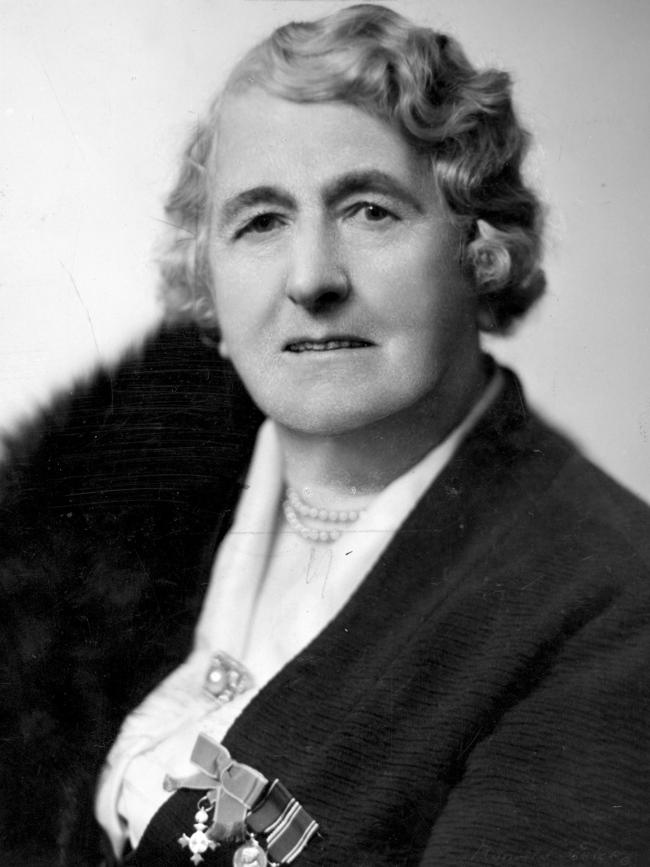
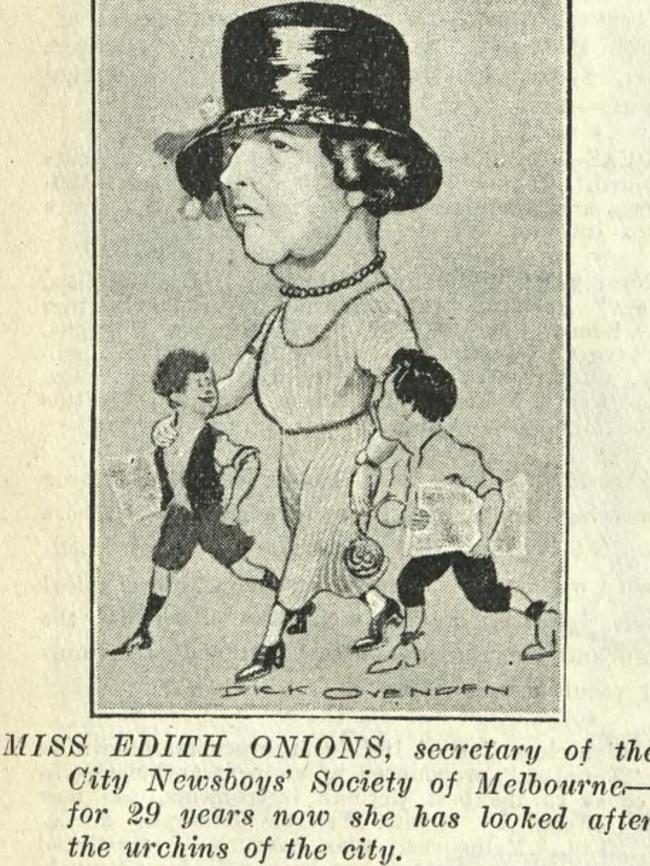
Ms Onians’ extraordinary life and the role of newsboys are explored in the museum’s exhibition, Lost Jobs: The Changing World of Work.
Ms Anderson says many newsboys were desperately poor, and some were trying to help widowed or deserted mothers support younger children.
“Some historians have said that those children would still be working at eight o’clock at night,” she says.
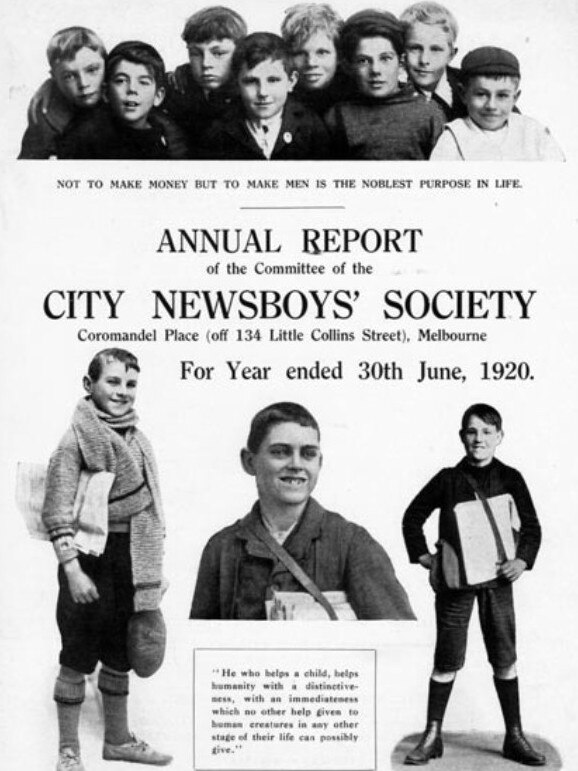
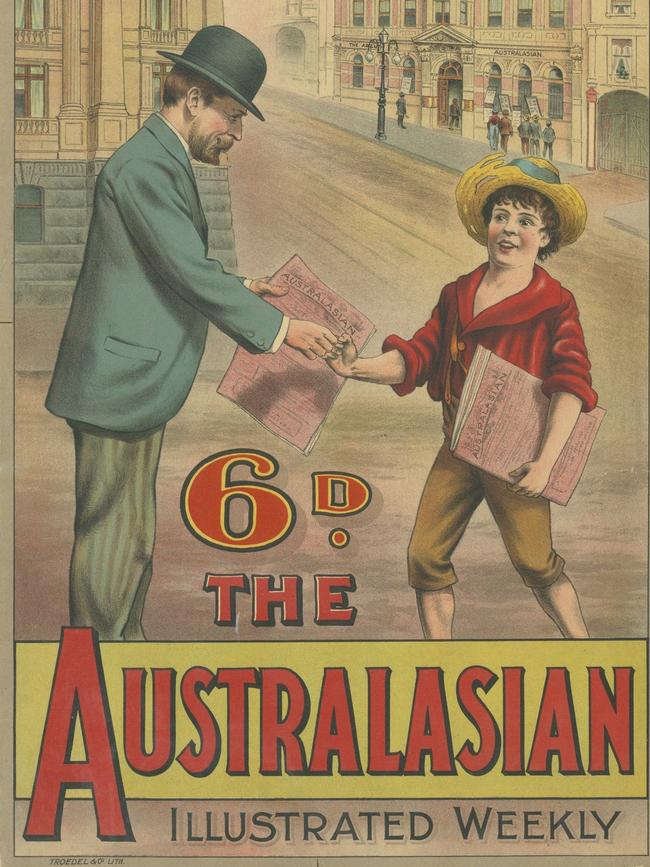
“So they’d go right through from the first edition, which probably came out at dawn, I guess, right through to the evening edition for papers like The Herald that often did an evening edition as well, up until eight or even later at night.”
The newsboys had to pay for their newspapers upfront, so many took risks out of desperation.
“There were many newsboys who were actually injured in the city, hit by trams or trampled by horses, and who were badly injured, and there were several who died,” Ms Anderson says.
“So it was a dangerous occupation … partly because of the way they wove in and out of the traffic, trying to sell their papers, but also just because they were literally on the streets.”
After Ms Onians’ death, The Argus reported she helped more than 20,000 boys between 1897, when she began teaching them to read, and her death 58 years later.
In 1936, she built a clubhouse for her City Newsboys’ Society in Little Collins St, which continued to operate for many years after her death.
“Ten years earlier she had persuaded the government to pass legislation to prohibit boys under 12 selling in the street,” The Argus reported.
“A former Cabinet minister, heads of two government departments, and scores of successful Melbourne citizens are among the thousands of former newsboys who will mourn the passing of ‘Miss’ or ‘Little Lady’, as she was known.”
To find out more, listen to the interview in the free In Black and White podcast on Apple Podcasts, Spotify or web.
See In Black & White in the Herald Sun newspaper every Friday for more stories and photos from Victoria’s past.


